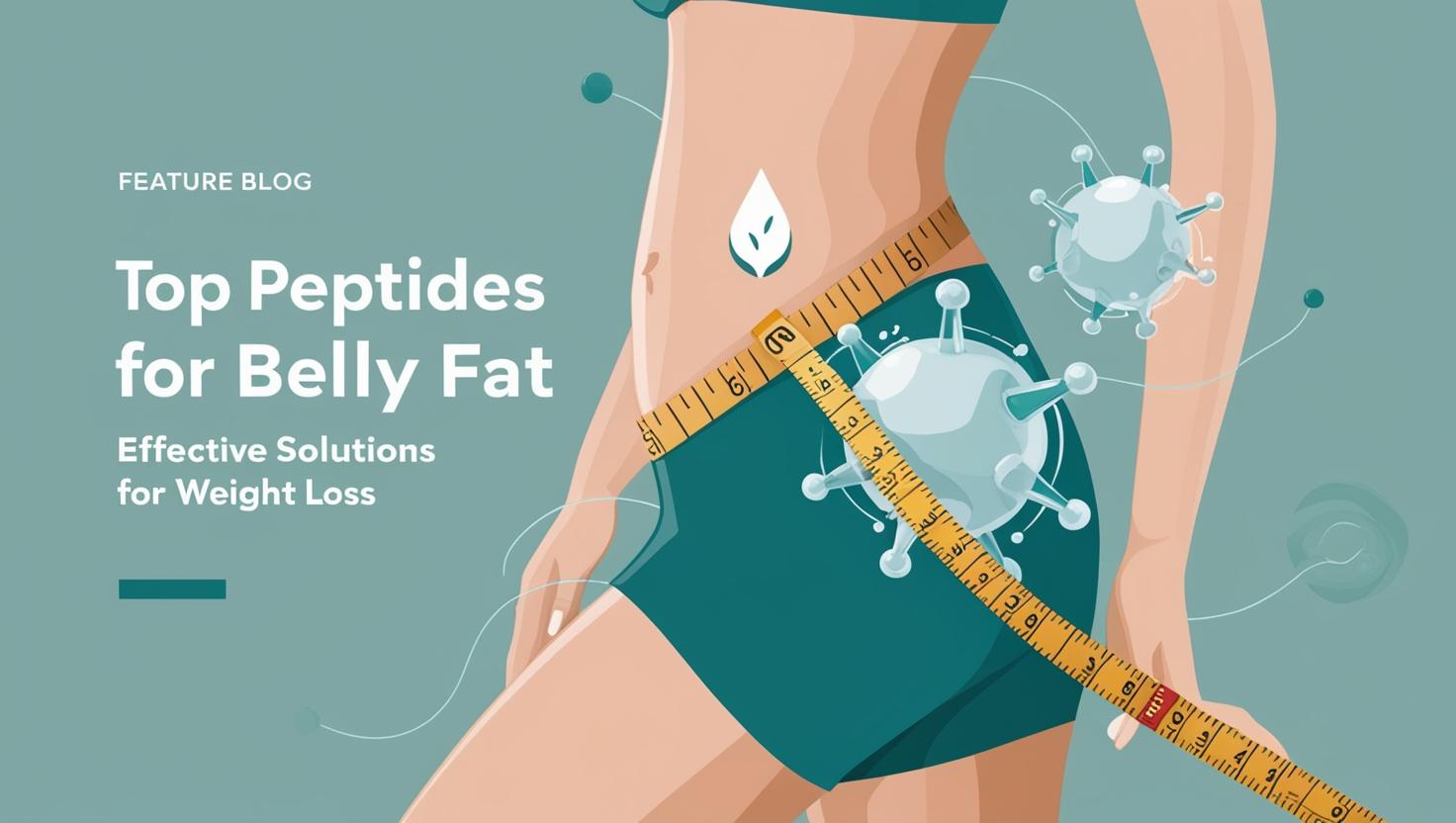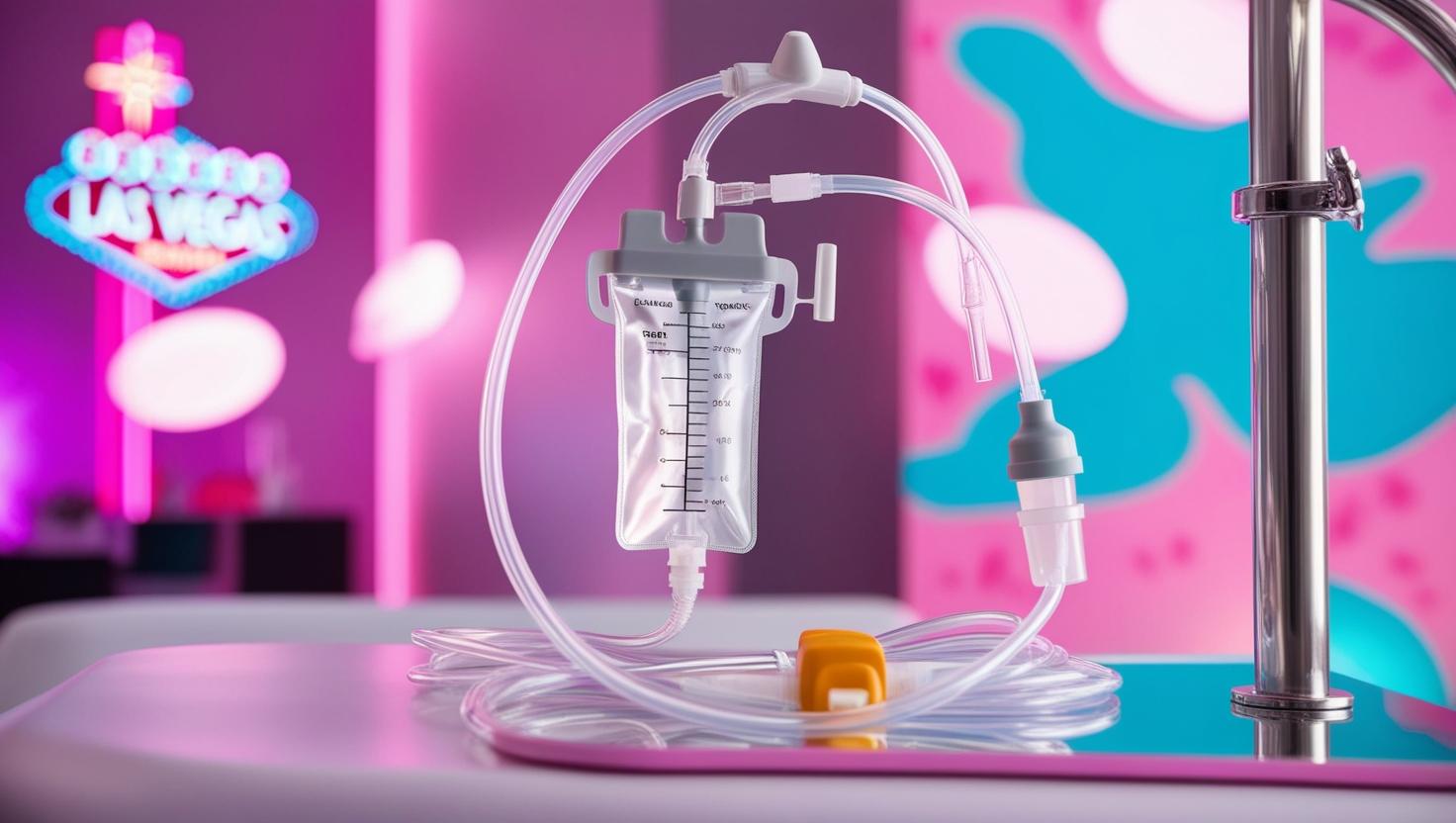Aging reduces testosterone levels, weakening bones and increasing fracture risks. This article explores the connection between TRT and bone health, why it matters as you age, and how therapy can help maintain bone density and strength.
Key Takeaways
- Testosterone Replacement Therapy (TRT) plays a crucial role in maintaining bone health in aging men by preserving bone mineral density and reducing fracture risk.
- Low testosterone levels are linked to increased risks of osteoporosis and fractures, making it essential for men to consider managing their testosterone levels.
- TRT not only improves bone health but also enhances overall quality of life, including increased muscle strength, energy, and emotional well-being.
The growing interest in testosterone replacement therapy (TRT) is reflected in the increasing number of testosterone prescriptions for men. Many seek the perceived benefits of feeling younger and more vigorous. However, there are numerous misconceptions about TRT, including unrealistic expectations and confusion about its health benefits as testosterone levels decline with age.
Before opting for TRT, understanding its potential risks and overall health impact is vital. This blog seeks to dispel these misconceptions and provide an in-depth view of TRT’s effects on bone health, particularly for aging men.
The Connection Between TRT and Bone Health: Why It Matters as You Age
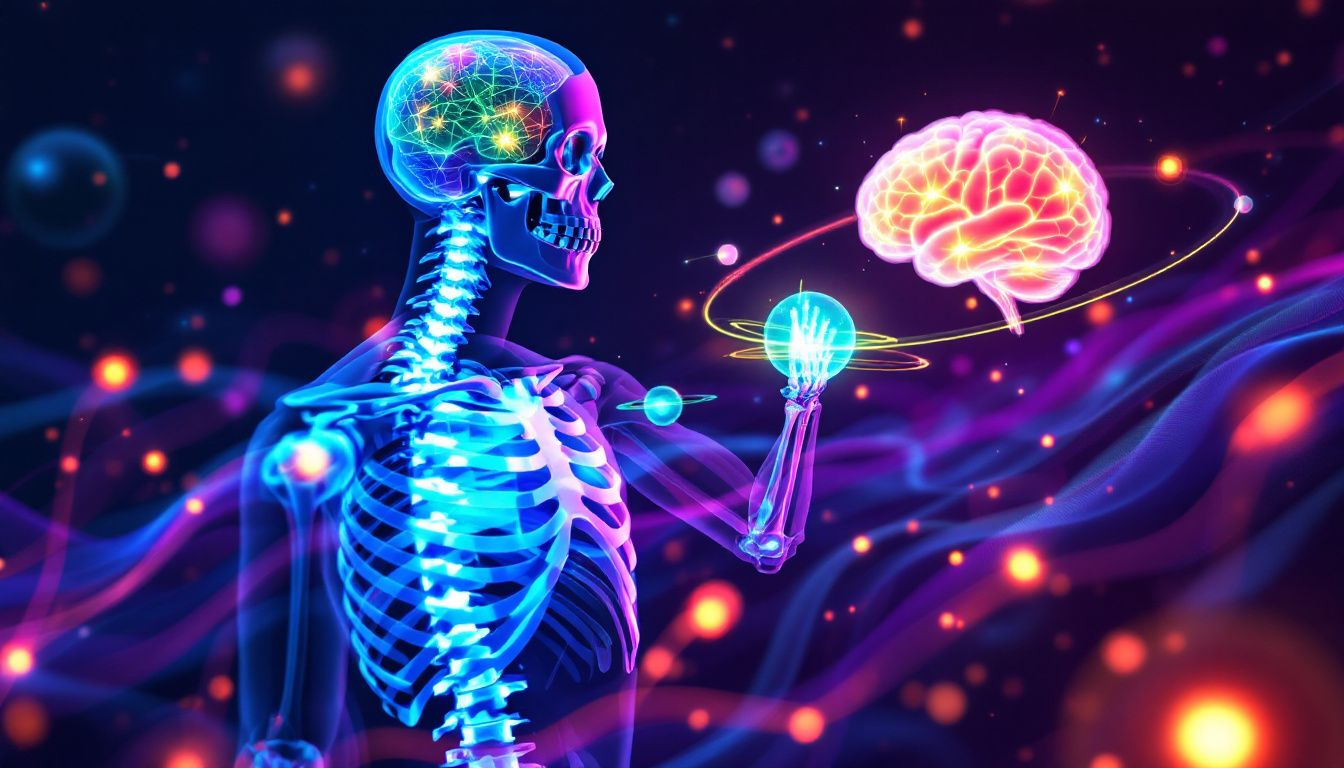
Recognizing the role of testosterone therapy is key to maintaining bone health as men age. With age, men’s testosterone levels naturally decline, causing a reduction in bone mineral density. This reduction can make bones more fragile and elevate fracture risks, highlighting the importance of adequate testosterone level for men as they age.
Research indicates a significant link between testosterone levels and bone mineral density. Testosterone is instrumental in the development of osteoblasts, essential cells for bone formation. Testosterone also regulates bone resorption and formation, vital processes for maintaining bone density.
Insufficient testosterone levels increase the risk of bone loss and related complications in aging men, and testosterone deficiency can exacerbate these issues. Managing testosterone levels through therapies like TRT can significantly preserve bone health and improve quality of life.
Understanding Testosterone and Its Role in Bone Health
Testosterone regulates bone resorption and formation, critical for maintaining bone density. Aging leads to a decline in testosterone, which decreased bone mineral density and increased fracture susceptibility. Knowing how testosterone affects bone health is crucial for aging men.
Testosterone promotes the development of osteoblasts, which are cells responsible for bone formation. Research indicates a significant link between testosterone levels and bone mineral density. Adequate testosterone levels help preserve bone health and reduce fracture risks.
Testosterone replacement therapy (TRT) can lead to increased lean body mass and better body fat distribution, which indirectly supports bone health. Understanding testosterone’s role in bone health enables men to make informed health decisions as they age.
The Impact of Low Testosterone on Bone Density
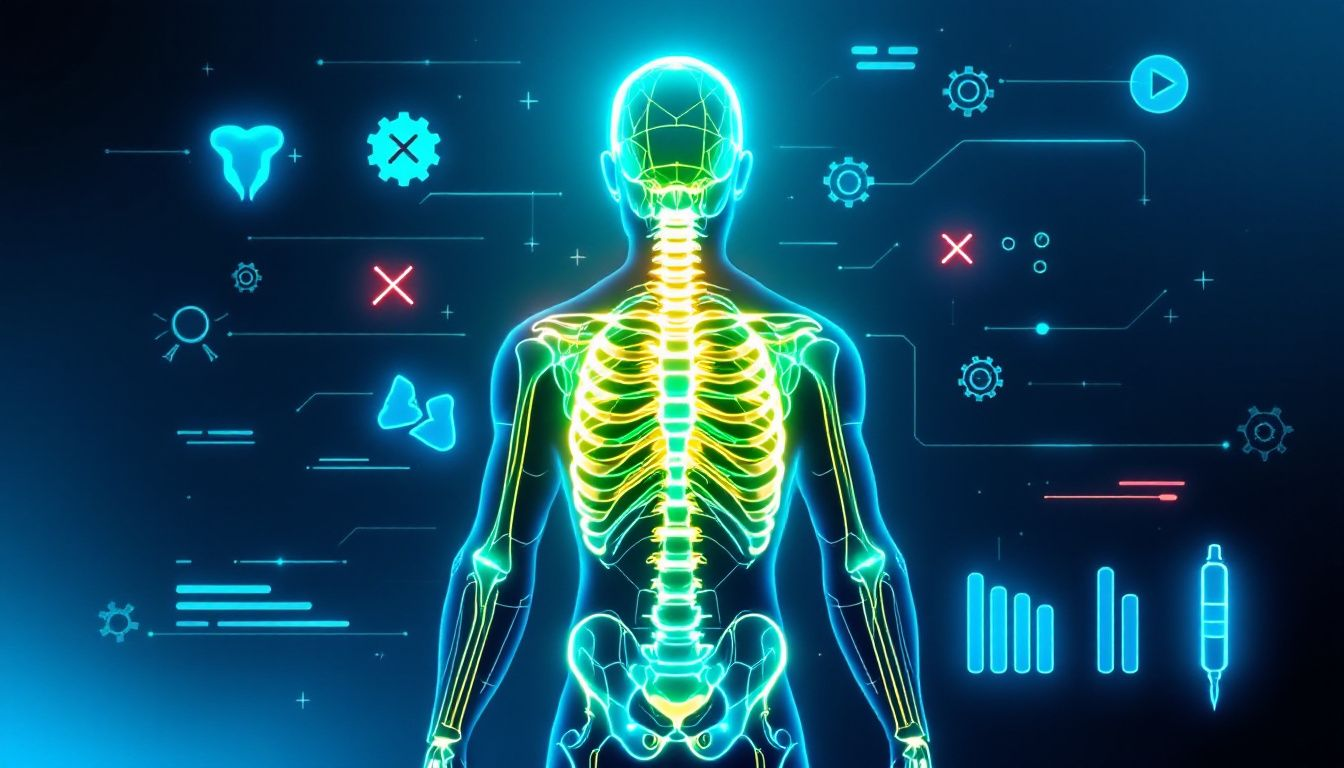
Low testosterone levels are associated with a higher risk of osteoporosis and fractures in older men. Testosterone influences bone health by regulating bone formation and resorption processes. With age-related testosterone decline, low testosterone concentrations decrease bone mineral density, resulting in weaker bones and increased fracture risk.
Men with low testosterone often have higher fracture rates compared to those with adequate levels. This relationship is especially pronounced in younger men with severe hypogonadism. Adequate testosterone levels are crucial for reducing fracture risk and preserving bone health in aging men.
The prevalence of osteoporosis in men tends to rise with age, with notable rates observed in older populations. Therapies like TRT can mitigate this risk and support overall bone health by addressing low testosterone levels.
How Testosterone Replacement Therapy Can Improve Bone Health
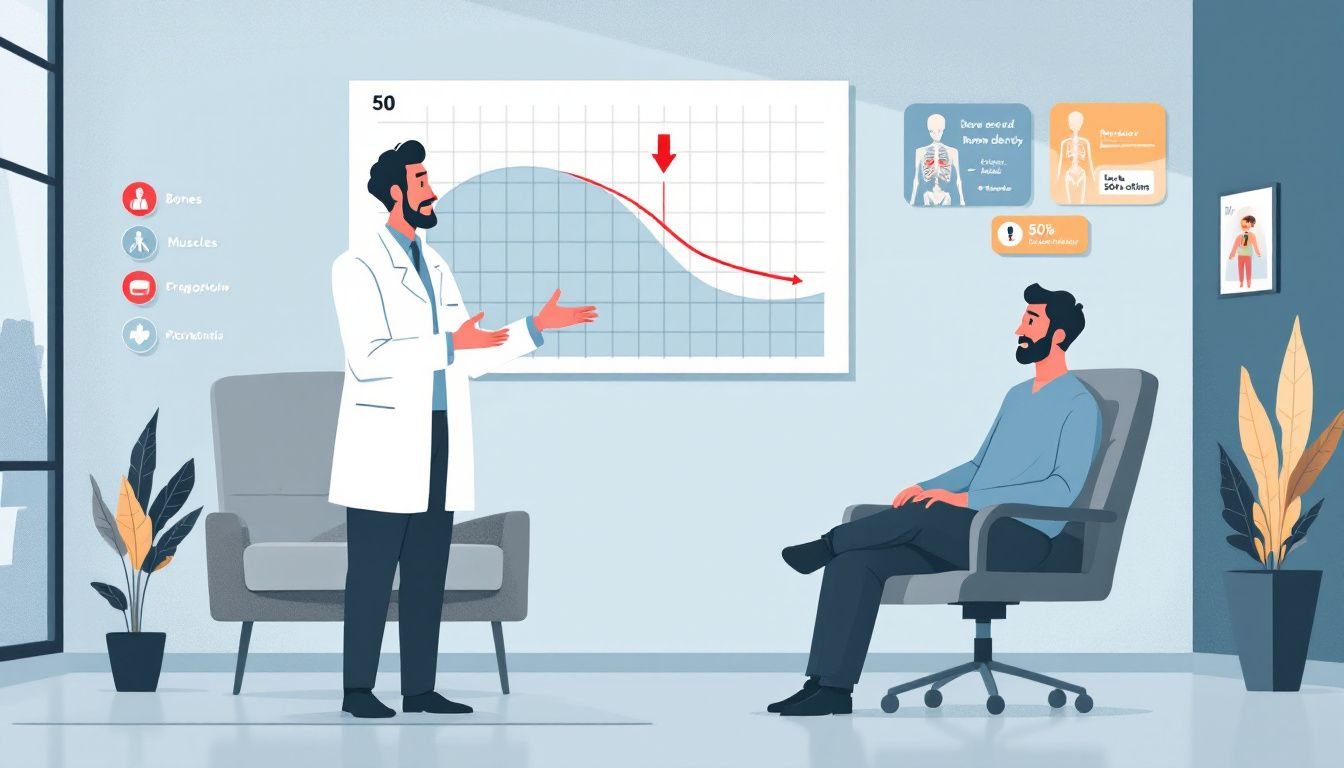
Testosterone replacement therapy (TRT) may help mitigate age-related bone density loss. For men with low testosterone levels, TRT can be an effective solution to rebuild bone density and improve overall bone health. However, it is important to note that the benefits of testosterone therapy for healthy older men remain unclear.
Understanding TRT’s mechanisms for enhancing volumetric bone density and controlled clinical trial evidence offers valuable insights into its effectiveness for aging men.
Mechanisms of TRT in Enhancing Bone Density
Testosterone stimulates bone formation by acting on osteoblast cells via androgen receptors. This interaction fosters the development of bone-forming cells, crucial for maintaining bone density. Testosterone also promotes the expression of insulin-like growth factor-1, supporting the proliferation of bone-forming cells.
Additionally, testosterone helps regulate cytokines that influence bone metabolism. This regulation is vital for maintaining bone density and preventing bone loss, making TRT valuable for supporting bone health in aging men.
Evidence from Clinical Trials
Clinical research shows TRT can significantly boost bone density in men with low testosterone levels. Enhanced bone density, strength, and physical function are reported benefits of testosterone replacement therapy in older men. A study in The Journal of Clinical Endocrinology & Metabolism found that TRT can enhance bone mineral density. This effect was observed in hypogonadal men of all ages.
Longitudinal studies report improved bone density with sustained testosterone therapy over time. These findings suggest TRT may be particularly beneficial for older men with osteopenia and osteoporosis. Long-term TRT can normalize and maintain bone density, crucial for aging men at risk for osteoporosis.
Additional Benefits of TRT for Aging Men
In addition to bone health, testosterone replacement therapy (TRT) offers other benefits for aging men. TRT is known for alleviating hypogonadism symptoms and improving bone mineral density. Studies have found that TRT can improve physical function and quality of life while increasing bone mineral density.
Increased energy, strength, and enhanced emotional well-being are other TRT benefits. Improving muscle strength and mass through TRT can indirectly benefit bone health by reducing fall risks.
Body Balance Medical emphasizes a holistic approach to therapy, also focusing on enhancing cognitive function and managing weight.
Muscle Mass and Strength
TRT has been linked to increased leg and chest muscle strength in older men. Testosterone therapy has been shown to improve muscle strength, particularly in the legs and chest. Increased lean muscle mass can help with weight management and improve overall physical performance.
TRT significantly enhances muscle mass and physical function in older men. Studies indicate TRT may enhance physical performance, particularly in tasks like walking and climbing stairs.
Sexual Function and Mood
Men on testosterone treatment often report improved mood and reduced fatigue. The studied population for testosterone therapy was based on reported low libido. TRT improvements in mood and sexual function contribute to a better quality of life.
Enhancing sexual function and mood through TRT helps men feel more satisfied and confident in daily life. These improvements lead to a more fulfilling and enjoyable experience with age.
Personalized Treatment Options at Body Balance Medical
Body Balance Medical provides specialized TRT services tailored to individual patient needs. The clinic emphasizes individualized TRT plans, catering to each patient’s specific needs. Healthcare providers at Body Balance Medical conduct thorough evaluations and blood tests to confirm low testosterone before initiating TRT.
Patients receive guidance on progress monitoring and side effect management during their TRT journey. The clinic offers various TRT administration methods, including injections, topical solutions, and pellets, to suit patient preferences.
Body Balance Medical aims to improve insulin sensitivity and lower type 2 diabetes risk through personalized treatment plans. By offering comprehensive and personalized TRT services, Body Balance Medical enhances patients’ health and wellness.
Healthy Lifestyle Choices to Support Bone Health
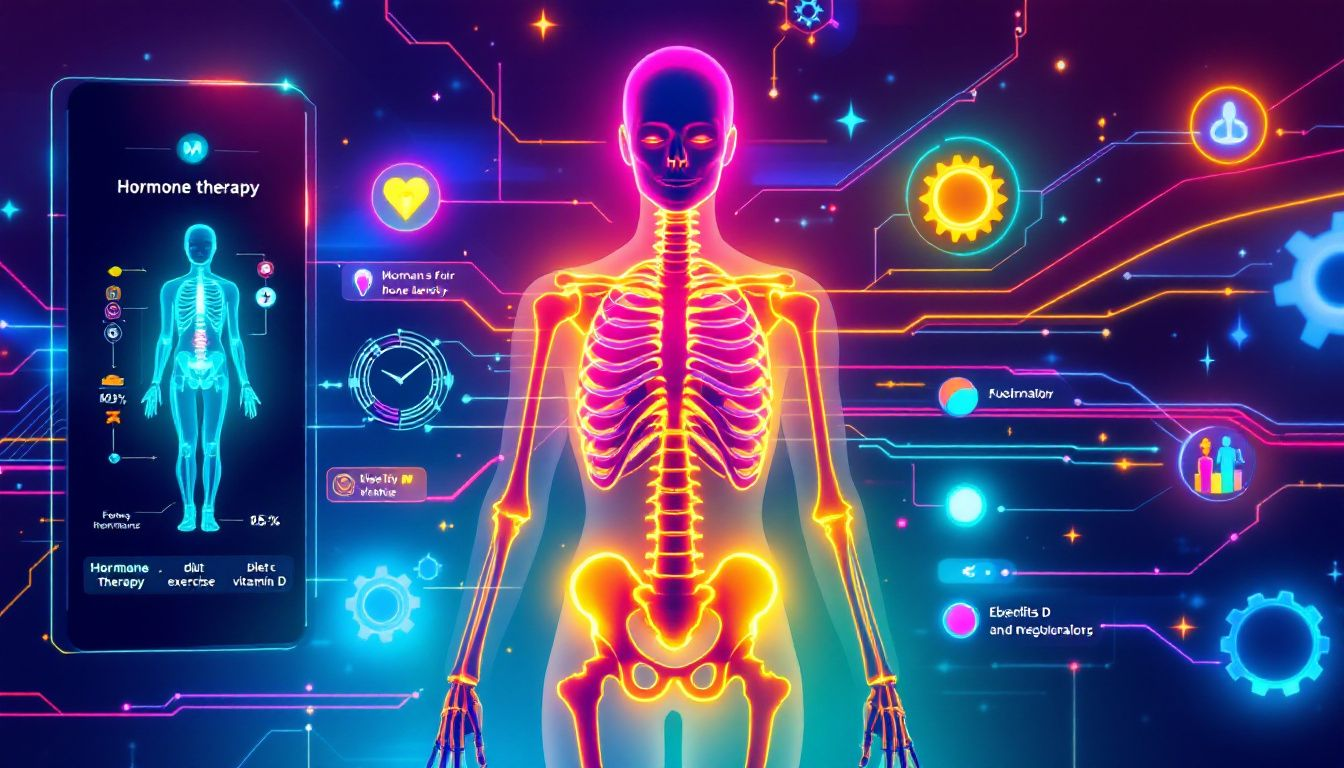
Awareness of testosterone’s impact on bone health can lead to better health decisions for aging men.
Combining simple lifestyle choices with TRT can strengthen bones and reduce fracture risk.
Men up to 70 should aim for a daily calcium intake of 1,000 mg. This intake is recommended for maintaining bone health.
Foods that are rich in calcium include:
- Dairy products
- Almonds
- Broccoli
- Soy
These foods help meet dietary calcium needs.
Weight-bearing exercises like walking, jogging, and racquet sports are crucial for men with low bone mineral density. Physical activity reduces osteoporosis risk and stimulates bone tissue production. Weight-bearing activities like climbing stairs and jogging strengthen bones and help reduce bone loss.
Potential Risks and Considerations of TRT
Patients on testosterone therapy should be routinely monitored for side effects like increased red blood cell count and potential cardiovascular complications. There is a notable risk of polycythemia, which may increase the likelihood of thromboembolic events in men receiving testosterone treatment. A clinical trial for older men with low testosterone was halted early due to increased cardiovascular events in the treated group.
Caution is advised in prescribing testosterone to men with existing cardiovascular conditions, as therapy may increase fluid retention. Testosterone replacement therapy is not recommended for men with untreated prostate cancer or breast cancer due to potential exacerbation of these conditions.
Additionally, some studies suggest testosterone therapy could worsen obstructive sleep apnea (OSA) in treated individuals.
Discussing the risks and benefits of testosterone therapy with your doctor is important. This discussion will help you make an informed decision. Knowing these considerations helps you make an informed decision about whether TRT is right for you.
Summary
In summary, testosterone replacement therapy (TRT) plays a crucial role in maintaining bone health as men age. Declining testosterone levels can lead to decreased bone mineral density, making bones more fragile and increasing the risk of fractures. TRT can help mitigate these risks by promoting bone formation, regulating bone resorption, and improving overall bone density.
Beyond bone health, TRT offers additional benefits such as improved muscle mass and strength, enhanced sexual function and mood, and better overall quality of life. However, it is important to consider the potential risks and consult with a healthcare provider to determine if TRT is right for you. By understanding and managing testosterone levels, aging men can preserve their bone health and enjoy a better quality of life.
Frequently Asked Questions
How does testosterone replacement therapy (TRT) improve bone health?
Testosterone replacement therapy enhances bone health by boosting osteoblast development and regulating bone resorption, ultimately increasing bone mineral density. This means stronger bones and a healthier you!
What are the additional benefits of TRT for aging men?
TRT can significantly boost muscle mass and strength while enhancing sexual function and mood, ultimately leading to a better overall quality of life for aging men. It’s an uplifting step towards feeling revitalized and confident!
What are the potential risks and side effects of TRT?
It’s important to be aware that TRT can lead to increased red blood cell count, cardiovascular issues, and possibly exacerbate certain cancers or sleep apnea. Staying informed and monitoring your health can help you manage these risks effectively.
How does Body Balance Medical personalize TRT treatment plans?
Body Balance Medical personalizes TRT treatment plans by performing comprehensive evaluations and blood tests to accurately assess testosterone levels. They then create tailored plans and provide various administration options to fit each patient’s unique preferences.
What lifestyle choices can support bone health alongside TRT?
Making healthy lifestyle choices, like eating a calcium-rich diet and engaging in weight-bearing exercises, can significantly enhance your bone health alongside TRT. Embrace these habits to strengthen your bones and support overall wellness!


